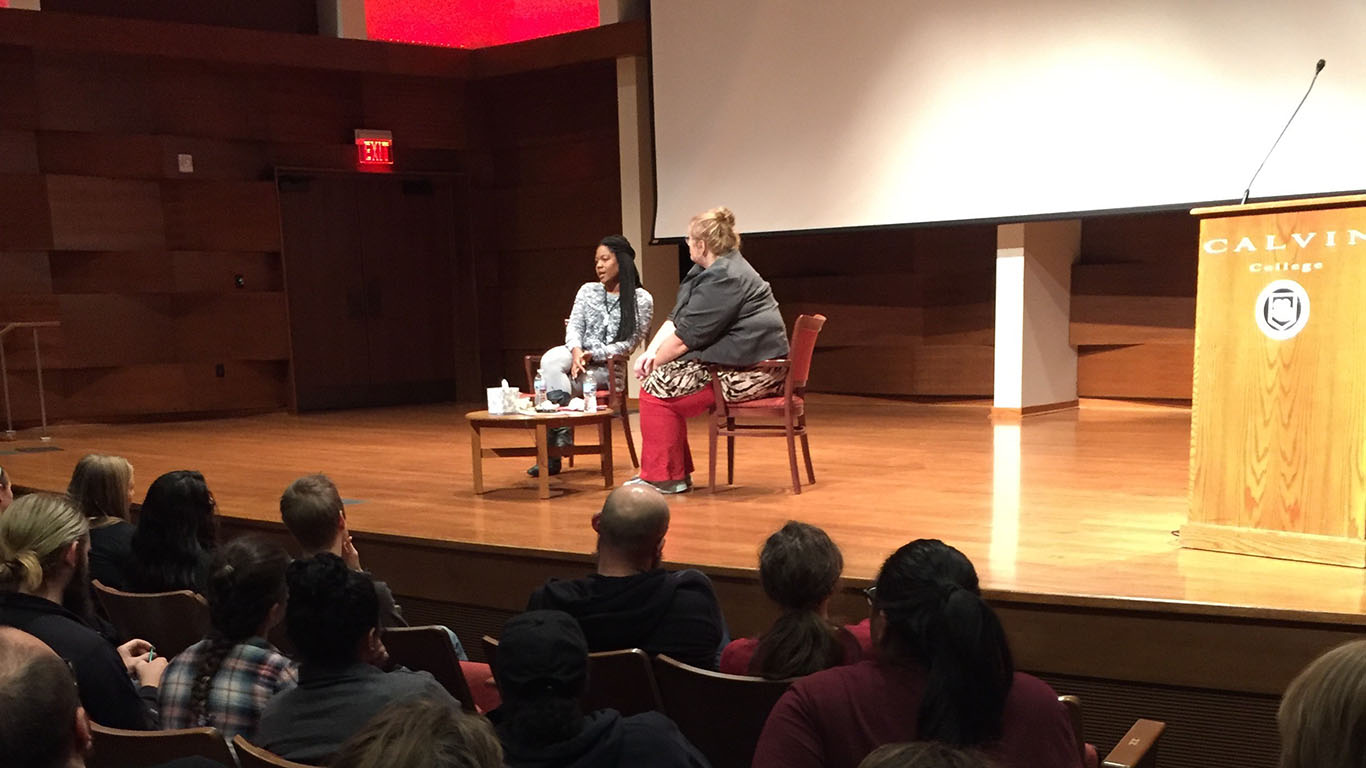“Austin, your father and I had a really hard time coming up with your name.”
Austin Channing Brown’s name is much more than a homage to her great-grandfather. It was a strategic choice, her parents’ way of “outwitting” society. At the start of her talk last Thursday Nov. 10, she recalled the time her mother explained why they chose it:
“We knew that anyone who read it would assume that you are a white man. One day, you will have to apply for colleges and jobs. We just wanted to make sure you could make it to the interview. We know once you get to the interview, you’ll blow everyone away. But we had to get you to the interview.”
This story comes from Brown’s memoir, which is forthcoming. Brown spoke to a full house in the CFAC Recital Hall. She is a sought-after speaker and writer on topics of racial justice and Christianity, on top of her job as resident director of Boer-Bennink.
Her name is just one way that her identity has been in tension with societal expectations throughout her life.
Brown spoke of how, growing up, she began “internalizing” that “blackness was only good as much as it was willing to mimic whiteness.”
Attending predominately white schools and churches, she learned that “whiteness decided what kind of blackness it wanted and how much blackness could be tolerated.” But as soon as she perfected this tolerable, desirable black identity, she was thrown into the culture shock of a black summer camp and realized she didn’t fit into either world anymore. It was at summer camp that Brown learned the fullness of black culture as “an alternative way of being in the world.”
Out of these and other experiences, Brown has come to champion the transformative power of black culture. “Blackness changes and creates, expands and contracts, it makes new and renews, it defines culture, gets bored, it creates words and music styles and dance forms, and no matter how much it evolves there is one thing that stays the same: blackness imagines.”
“Blackness is always changing the world” through its immense creative and imaginative power, argued Brown.
Finally, she bemoaned that whiteness has such a narrow idea of what blackness ought to be. Brown posited that, in fact, acceptance of all forms of black culture is essential, for “racial reconciliation is impossible without loving the expanse that is blackness.”
Both the speaker and audience were visibly raw from the election of a presidential candidate who has been associated with racist remarks and has had the outspoken support of white supremacist leaders.
As Brown reached the end of her reading, listing the reasons she has hope that “blackness will transform the world,” she started crying. And soon, a good number of the audience was tearing up with her.
Lisa Cockrel, director of the Festival of Faith and Writing, interviewed Brown about her writing process and literary influences. When Cockrel opened the floor for questions the conversation immediately turned emotional again.
One audience member stood up to ask the question of how white people should act toward their own privilege. Should white people refuse their inherent privilege, or embrace it but use it to champion the causes of others? Brown discussed privilege a little, but she was frank: white people need to figure that question out for themselves.
Brown’s talk was the third in the Calvin Center for Faith and Writing’s fall writers series, titled “We the People: Race in America.” The final event in the series will feature Peter Ho Davies on Dec. 8.








